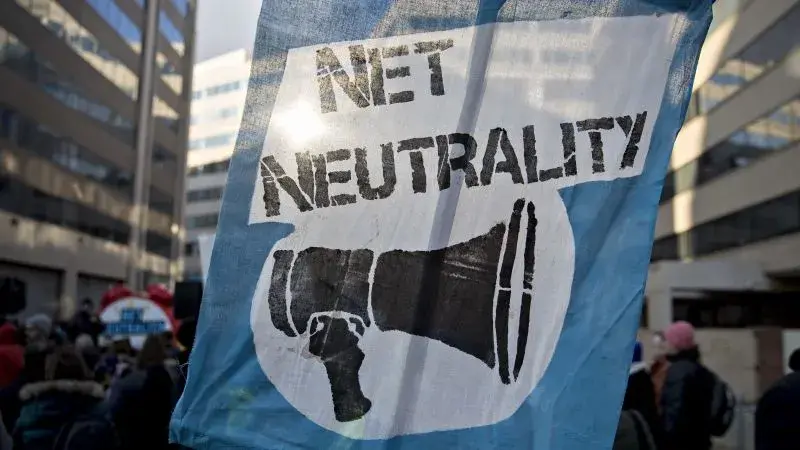Gaywallet (they/it)
I’m gay
- 14 Posts
- 22 Comments

 1·1 day ago
1·1 day agoThe pronouns are right there, in the display name
 . I’m confused, do they not show up for you? You’re on our instance so I’m guessing it’s not a front-end difference, but maybe you’re browsing on an app that doesn’t show it appropriately? Although I would mention their username itself includes the words “IsTrans” and is sourced from lemmy.blahaj.zone so those should be other key indicators.
. I’m confused, do they not show up for you? You’re on our instance so I’m guessing it’s not a front-end difference, but maybe you’re browsing on an app that doesn’t show it appropriately? Although I would mention their username itself includes the words “IsTrans” and is sourced from lemmy.blahaj.zone so those should be other key indicators.I was hardly about to ban you over a small mistake. The only reason I even replied to this, is that multiple people reported it and Emily herself came in and corrected you. The action was more about signaling to others that this is a safe space.

 1·5 days ago
1·5 days agooof, big flaw there

 6·5 days ago
6·5 days agoAny information humanity has ever preserved in any format is worthless
It’s like this person only just discovered science, lol. Has this person never realized that bias is a thing? There’s a reason we learn to cite our sources, because people need the context of what bias is being shown. Entire civilizations have been erased by people who conquered them, do you really think they didn’t re-write the history of who these people are? Has this person never followed scientific advancement, where people test and validate that results can be reproduced?
Humans are absolutely gonna human. The author is right to realize that a single source holds a lot less factual accuracy than many sources, but it’s catastrophizing to call it worthless and it ignores how additional information can add to or detract from a particular claim- so long as we examine the biases present in the creation of said information resources.

 5·9 days ago
5·9 days agoThis isn’t just about GPT, of note in the article, one example:
The AI assistant conducted a Breast Imaging Reporting and Data System (BI-RADS) assessment on each scan. Researchers knew beforehand which mammograms had cancer but set up the AI to provide an incorrect answer for a subset of the scans. When the AI provided an incorrect result, researchers found inexperienced and moderately experienced radiologists dropped their cancer-detecting accuracy from around 80% to about 22%. Very experienced radiologists’ accuracy dropped from nearly 80% to 45%.
In this case, researchers manually spoiled the results of a non-generative AI designed to highlight areas of interest. Being presented with incorrect information reduced the accuracy of the radiologist. This kind of bias/issue is important to highlight and is of critical importance when we talk about when and how to ethically introduce any form of computerized assistance in healthcare.

 4·9 days ago
4·9 days agoah yes, i forgot that this article was written specifically to address you and only you

 10·20 days ago
10·20 days agoIt’s FUCKING OBVIOUS
What is obvious to you is not always obvious to others. There are already countless examples of AI being used to do things like sort through applicants for jobs, who gets audited for child protective services, and who can get a visa for a country.
But it’s also more insidious than that, because the far reaching implications of this bias often cannot be predicted. For example, excluding all gender data from training ended up making sexism worse in this real world example of financial lending assisted by AI and the same was true for apple’s credit card and we even have full-blown articles showing how the removal of data can actually reinforce bias indicating that it’s not just what material is used to train the model but what data is not used or explicitly removed.
This is so much more complicated than “this is obvious” and there’s a lot of signs pointing towards the need for regulation around AI and ML models being used in places it really matters, such as decision making, until we understand it a lot better.
Okay I understand what you are saying now, but I believe that you are conflating two ideas here.
The first idea is about learning the concepts, and not just the specifics. There’s a difference between memorizing a specific chemical reaction and understanding types of chemical reactions and using that to deduce what a specific chemical reaction would be given two substances. I would not call that intuition, however, as it’s a matter of learning larger patterns, rules, or processes.
The second idea is about making things happen faster and less consciously. In essence, this is pattern recognition, but in practice it’s a bit more complicated. Playing a piece over and over or shooting a basketball over and over is a rather unique process in that it involves muscle memory (or more accurately it involves specific areas of the brain devoted to motor cortex activation patterns working in sync with sensory systems such as proprioception). Knowing how to declare a variable or the order of operations, on the other hand, is pattern recognition within the context of a specific language or programming languages in general (as a reflection of currently circulating/used programming languages). I would consider both of these (muscle memory and pattern recognition) as aligned with the idea of intuition as you’ve defined it.
Rote learning is not necessary to understand concepts, but the amount of repetition needed to remember an idea after x period of time is going vary from person to person and how long after you expect someone to remember something. Pattern recognition and muscle memory, however, typically require a higher amount of repetition to sink in, but will also vary depending on person and time between learning and recall.
it helps develop intuition of the relationship between numbers and the various mathematical operations
Could you expand upon this? I’m not sure I understand what you mean by an ‘intuition’.
I want to start off by saying that I agree there are aspects of the process which are important and should be learned, but this is more to do with critical thinking and applicable skills than it has to do with the process itself.
Of note, this part of your reply in particular I believe is somewhat shortsighted
Cheating, whether using AI or not, is preventing yourself from learning and developing mastery and understanding.
Using AI to answer a question is not necessarily preventing yourself from learning and developing mastery and understanding. The use of AI is a skill in the same way that any ability to look up information is a skill. But blindly putting information into an AI and copy/pasting the results is very different from using AI as a resource in a similar way one might use a book or an article as a resource. A single scientific study with a finding doesn’t make fact - it provides evidence for fact and must be considered in the context of other available evidence.
In addition, learning to interact with and use AI is a skill in the same way that learning to interact with and use a phone, or the internet, or an app are all skills. With interaction layers becoming increasingly more abstract (which is normal and good), people need to have skills at each layer in order for processes to exist and for tools be useful to humanity. Most modern tools require people who can operate on different levels with different levels of skill. While computers are an easy example since you are replying on some kind of electronic device which requires everything from chemists to engineers to fabrication specialists and programmers (hardware, software, operating system, etc.) to work, this is true for nearly any human made product in the modern world. Being able to drive a car is a very different skill set than being able to maintain a car, or work on a car, or fabricate parts for a car, or design parts for a car, or design the machinery that manufactures the parts for the car, and so on.
This is a particularly long winded way of pointing out something that’s always been true - the idea that you should learn how to do math in your head because ‘you won’t always have a calculator’ or that the idea that you need to understand how to do the problem in your head or how the calculator is working to understand the material is a false one and it’s one that erases the complexity of modern life. Practicing the process helps you learn a specific skill in a specific context and people who make use of existing systems to bypass the need of having that skill are not better or worse - they are simply training a different skill. The means by which they bypass the process is extremely important - they could give it no thought at all or they may critically think about it and devise a process which still pays attention to the underlying process without fully understanding how to replicate it. The difference in approach is important, and in the context of learning it’s important to experiment and learn critical thinking skills to make a decision of where you wish to have that additional mastery and what level of abstraction you are comfortable with and care about interacting with.

 18·1 month ago
18·1 month agoExtremely based, good job FTC

 18·1 month ago
18·1 month agoIs that for sure right? I don’t know. I don’t really care. My daughter was happy with an answer and I’ve already warned her it could be bullshit. But curiosity was satisfied.
I’m not sure if you recognize this, but this is precisely how mentalism, psychics, and others in similar fields have always existed! Look no further than Pliny the elder or Rasputin for folks who made a career out of magical and mystical explanations for everything and gained great status for it. ChatGPT is in many ways the modern version of these individuals, gaining status for having answers to everything which seem plausible enough.

 10·1 month ago
10·1 month agoAs much as I despise the current court, I would not expect them to rule in that fashion because this isn’t an issue that’s politically charged. Gorsuch is very much a letter of the law boy, so he’d rule in favor of existing law and the idea of making law more explicit if there are areas which can’t be reasoned out. Jackson, Kagan, and Sotomayor are all pro consumer rights, so they’d vote against EULA applying super broadly. My guess is Roberts would also vote in favor of consumer protection given his track record. Thomas could probably be bought off, but IDK if Disney would want to be associated with buying him off. Then again Thomas is against regulation in general so he might be fine with EULA of any scope. Barrett studied under Scalia, so she’ll probably be against because Disney is too woke. Kavanaugh tends to lean team Gorsuch when it comes to word of the law so long as it doesn’t violate his conservative principles so my guess is he’d also be against. It could be a 8-1 against Disney with those numbers.
But perhaps more importantly, they’d probably just not even take it up as an issue, and leave it up to the lower court unless the lower court gave an absolutely wild verdict.

 32·1 month ago
32·1 month agoI hope Disney’s claim gets thrown out because I worry about the precedent this could set for EULAs going forward.
I hope that it isn’t thrown out. I hope it goes to court, and the judge, in their ruling, outlines precisely why a EULA for Disney+ doesn’t apply here - reasons such as a single month of service not constituting an endless contract, a contract not being able to apply outside the bounds of the service regardless of the serving entity, perhaps even some comment on the scope of the EULA and what’s allowed in a legal contract (especially when it’s presented the way it is).
There is a massive opportunity for a judge, biased or not, to make it clear where the bounds of law, as it is currently written, apply and do not apply in this case without making any major decisions about the scope of EULAs themselves.

 3·1 month ago
3·1 month agoThis is right in line with the other spots I’ve lived in the city (SoMa, avenues).
This is definitely normal for SoMA but down at 2nd st is approaching the financial district which is usually a bit quieter at night. I can understand someone who’s just not used to it, or used to living in noisy parts of the city being upset or surprised about it.
But also 2nd/folsom is right at the bridge on-ramp which I would imagine is getting a fair deal of freeway noise 🤷♀️

 13·1 month ago
13·1 month agohell yea that rules

 11·1 month ago
11·1 month agoThank you for the kind words. Not updating is not a decision we have taken lightly. I can’t speak to the specifics because I’m not tech enough to fully understand them, but I believe part of the reason for updating has to do with that migration off Lemmy - that it changes the way data is stored and organized and because of such the migration process (moving comments, threads, etc. to sublinks) would need to be entirely redesigned.

 10·1 month ago
10·1 month agoI just want to say that @TheRtRevKaiser@beehaw.org did a great job explaining some of the issues with your reply, but there’s a few things that I want to focus on in your reply.
- It’s easy to make the claim that you don’t care about skin color, but it simply doesn’t pan out. Here’s a fairly long but comprehensive review on implicit bias training, which talks a bit about the prevalence and need for the training in the first place. In short, the literature proves that everyone has implicit biases - it’s simply how our brains work. While some issues suffer from stronger biases than others, and the bias varies from person to person, it’s always there.
- The idea of “not seeing” race may be an appealing one to state, but it’s an over-correction. Try telling someone in a wheelchair that you “don’t see disability” and see how they react. They’re not going to be happy. You absolutely see their identity. What you mean to say is that their identity doesn’t factor into your decision, which as I just stated in the last point is objectively incorrect. At best we can work to minimize how one’s identity shapes our decisions.
- Racism can only have certain victims. Racism is the interaction between prejudice and power. The reason it’s defined like this is the same reason we talk about the paradox of tolerance. Punching a Nazi is technically violence, but there’s a difference between hateful violence and defensive violence. While you can classify people being prejudiced against white folks as racism, there’s a similar distinction between prejudice and racism that applies here. To be clear, I do want you to be reporting any kind of prejudice that occurs on Beehaw, but we need to define and describe the differences because the inclusion of power and minority status are important here.
- Just because you don’t think something is a problem doesn’t mean it’s not a problem. Someone who has a different identity than you, or who spends time in spaces you don’t is sharing something. Telling them they are wrong or that they are imagining things is not a nice thing to do - if you don’t think it’s an issue, then don’t reply. If you do think it’s an issue, frame it differently - rather than accusing them of trying to shame white people, how about simply framing things through your own eyes. Don’t say that they are trying to shame people, instead say this is making you feel ashamed or angry.

 10·2 months ago
10·2 months agoThe author touches on this near the beginning-
Winamp skins are actually just zip files with a different file extension
So they’re treating them like archives and extracting them

 3·2 months ago
3·2 months agoI’m going to treat you with good faith and assume you were using “cool man” in the same way someone might say “that’s just like your opinion man”, as a saying, but I will remind you that this person has their pronouns in their display name and you need to respect them.













probably not, in the same way that your grandma calls a video chat a facetime or your representative might call the internet a series of tubes
AI is the default word for any kind of machine magic now